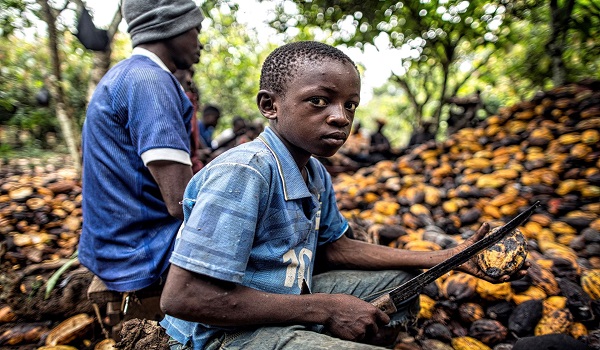Chocolate giants, including Mars and Cadbury, face criticism over their ethical standards in the cocoa supply chain, according to a report by Ethical Consumer. Out of 82 companies investigated, only 17 were found to ensure cocoa farmers received a living wage. This raises concerns about the use of child labour in the production of Christmas treats such as Advent calendars and chocolate Santas, particularly as about 60% of the world’s cocoa comes from West Africa, where child labour is prevalent. Ethical Consumer recommends brands like Tony’s Chocolonely, Divine, and Chocolat Madagascar for their commitment to Fairtrade International or Rainforest Alliance rates, supporting local economies.
Mars, Nestlé, and Cadbury’s owner, Mondelēz, were rated poorly and labelled “brands to avoid.” Despite sustainability schemes, these companies were criticized for not adequately covering all their cocoa suppliers, leaving some farmers without benefits. The report also evaluated brands on tax conduct, palm oil use, deforestation, and plastic packaging.
Jasmine Owens from Ethical Consumer emphasized the significant power consumers hold in influencing conditions for West African cocoa farmers. While some recommended ethical brands might be more expensive and less accessible, they are viewed as worthwhile treats or gifts. Tony’s Chocolonely, in particular, is praised for actively trying to reform the chocolate industry.
The University of Chicago’s National Opinion Research Centre reported hazardous child labour among 43% of children in cocoa-growing areas in Ghana and Ivory Coast. The International Cocoa Initiative stresses the role of the cocoa industry, governments, civil society organizations, and cocoa-consuming countries in ending child labour, emphasizing the need for access to quality education and healthcare for affected communities.
Companies face challenges in tracking the origin of cocoa due to global pricing, and tracing using DNA technology is deemed costly and largely unexplored. Major chocolate companies, including Nestlé and Ferrero, defended their sustainability efforts, with Nestlé aiming to source all its chocolate through the Cocoa Life program by 2025.
Mars, while not responding directly, referred to its Cocoa for Generations strategy, a billion-dollar, 10-year initiative focusing on farmers’ welfare and income. Ferrero highlighted its commitment to sourcing cocoa through Rainforest Alliance, Fairtrade Foundation, and Cocoa Horizons, along with efforts to improve livelihoods and support environmental sustainability.
These responses come amidst growing concerns about the inequality in the chocolate industry and the need for more transparent and ethical practices.


